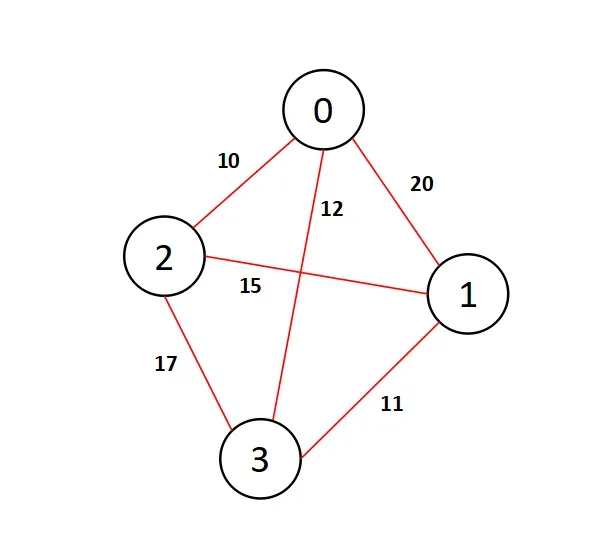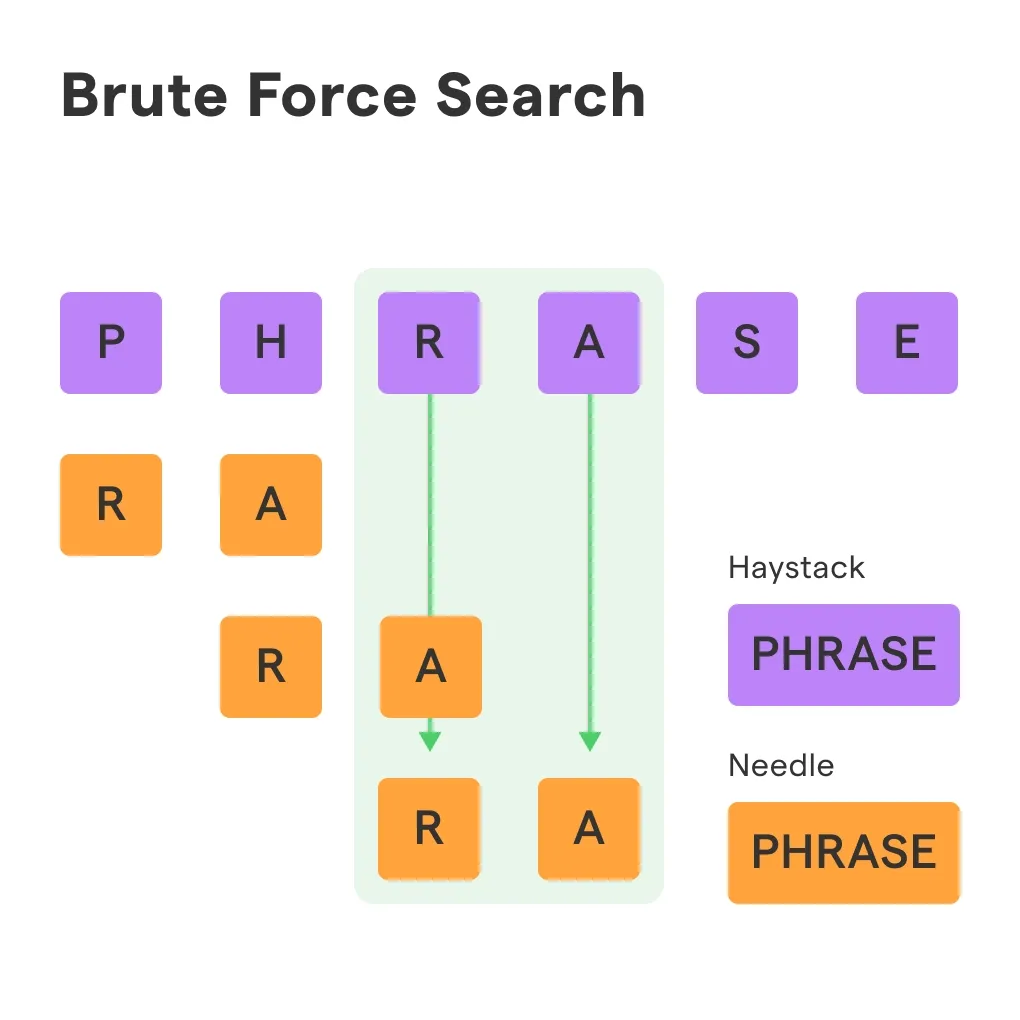What is Brute Force Search?
Brute force search is like trying every key on a huge keyring to unlock a door.
It's a trial-and-error method used by computers to solve problems by testing all possible combinations until the correct one is found.
Definition and Core Idea
Brute force search doesn't beat around the bush. It considers every single possibility until it hits upon the right answer. This method is reliable and straightforward.
Think of it as checking every storage box in a warehouse to find a particular item, rather than trying to remember where you may have left it.
Where It's Commonly Used
You'll see brute force search in action in areas where precision is key, and you can't afford to miss out on any option.
Security checks, puzzle games, and basic computer programs often use brute force tactics to ensure they aren't overlooking the right solution.
Understanding Through Everyday Examples
A real-life example is when you forget a password and try every possible combination until you get it right.
Similarly, computers use brute force methods to accomplish tasks ranging from cracking passwords to solving complex scientific calculations.
What are Brute-Force Algorithms?
Brute-force algorithms are the backbone of the brute-force search. They're like the step-by-step instructions a treasure hunter follows, visiting every spot on the map to ensure no stone is left unturned.
Characteristics of Brute-Force Algorithms
The defining feature of these algorithms is their simplicity: They don't try to be clever.
They're like a determined person who makes no guesses but goes through every file in a cabinet to find a particular document.
Types of Problems Suitable for Brute-Force
Problems that have a limited number of possible solutions and require certainty are prime candidates for brute-force algorithms.
It's like choosing to manually count every vote in a small-scale election to guarantee accuracy.
Implementation in Computing
Programming a computer to use brute-force algorithms is like teaching someone to solve a jigsaw puzzle by trying every piece in every position.
It's methodical, uncomplicated, and gets the job done, especially when the puzzle isn't too complex.
How Can You Speed Up Brute-Force Searches?
Even though brute-force searches can be slow, there are ways to make them quicker. It's akin to organizing a team to search through those warehouse boxes more efficiently.

Optimizing the Code
Coding tricks can make brute force searches run a bit faster. Optimizing your code is like making sure your warehouse team uses the best routes and communicates effectively to avoid repeating work.
Employing Parallel Processing
Using several computers to run a brute-force search at once is like having multiple teams working in different parts of the warehouse simultaneously. This way, each team's effort contributes to finding the item sooner.
Heuristic Enhancements
Incorporating heuristics—or smart guesses—can guide brute-force searches, akin to giving the warehouse team hints about where the item might be, reducing the need to check less likely places.
What are the Advantages of Brute Force Search?
Despite its simplicity, brute force search has some solid benefits.
It's like having an all-purpose tool in your toolbox that may not be fancy but gets jobs done regardless.
Assurance of Finding a Solution
Brute force search doesn't give up. It'll find the solution as long as it exists, like a detective who combs through every clue to solve a case.
Simplicity and Accessibility
Its easy-to-understand nature makes it accessible to beginners and experts alike.
It's the computational equivalent of using trial and error to learn how to solve a new puzzle without needing any special techniques or instruction.
Useful for Testing and Benchmarking
Brute force search can serve as a test to make sure more complex algorithms are working correctly.
It's like checking your work in math by using the basic addition instead of shortcuts to confirm the answer.
What are the Disadvantages of Brute Force Search?
While there are perks, brute force search has its drawbacks. It's not the quickest or most elegant solution-finding method, resembling a one-size-fits-all garment that may not be the best fit.
Not Suitable for Large Problems
Brute force searches take too long for large-scale problems. It's like if our warehouse was the size of a city; searching every box by hand would be impractical.
Resource Intensive
This method gobbles up computing resources. It's like turning on all the lights in the city to find a lost ring at night—possible, but certainly not efficient or cost-effective.
Predictability and Security Concerns
In cybersecurity, predictability can be a weakness, making systems vulnerable to brute-force attacks. It's like a lock that can be picked by trying every possible key—a determined burglar with enough time could break in.
Balancing the Pros and Cons
Understanding both the good and the bad is critical when deciding to employ brute force search.
It boils down to a cost-benefit analysis, like deciding whether it's worth digging up an entire beach to find a lost ring.
Assessing Cost vs. Benefit
You have to weigh the simplicity and surety of success against the time and resources consumed.
It’s like deciding whether to handwash all your laundry for the sake of certainty or using a washing machine that’s faster but might miss a sock occasionally.
Strategizing Use in Computing Tasks
In the computing world, using brute force search is like choosing the right tool for the job.
Sometimes a simple hammer is best; other times, you need a precision screwdriver.
Future Considerations
With computing power increasing and smarter algorithms being developed, brute force search might become a seldom-used tool in the toolbox, like an old phone that gets replaced by a smart one but is kept around just in case.
Future of Brute Force Search
Looking ahead, the role of brute force search in problem-solving is likely to evolve.
As technology advances, brute force search may either become faster or be replaced by more efficient methods.
Impact of Increasing Computational Power
As our computational abilities grow, even larger brute-force searches might become feasible. It's comparable to finding that lost ring with advanced metal detectors instead of manual digging.
Role of Artificial Intelligence
Artificial intelligence might take brute force searches to the next level by adding an element of intuition. It’s like a metal detector that can differentiate between a ring and a bottle cap, saving time and effort.
Quantum Computing: The Game-Changer
Quantum computing is poised to revolutionize brute force searches by potentially solving problems instantaneously that would currently take years.
Imagine teleporting to every spot on the beach instantly to find the ring—that's the kind of leap quantum computing could represent for brute force search.
Frequently Asked Questions (FAQs)
Why is brute-force search considered inefficient for large datasets?
Brute-force search checks every possible solution, leading to exponential time consumption as data size increases, making it impractical for large datasets.
Can brute-force search guarantee finding a solution?
Yes, brute-force search will always find a solution if it exists, as it exhaustively explores all possibilities.
In what scenarios is brute-force search still used?
It's utilized in scenarios where datasets are small, the problem space is limited, or when ensuring the absolute certainty of finding a solution is critical.
How does brute-force search compare to heuristic methods?
While brute-force search guarantees a solution by exploring all options, heuristic methods aim to find good enough solutions more quickly by using strategies to explore less.
Is parallel computing effective in accelerating brute-force search?
Yes, parallel computing can significantly reduce the time taken for brute-force searches by dividing the task among multiple processors to work on simultaneously.


